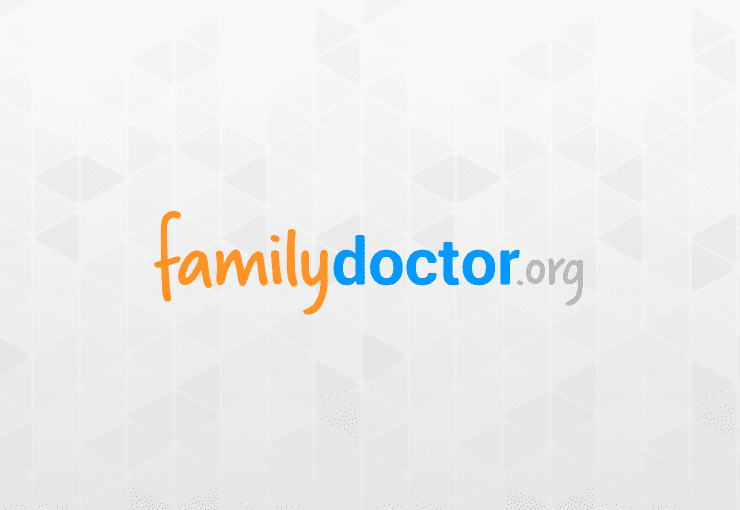Breast lumps, pain, discharge or skin problems can be a sign of a minor problem or something more serious, so it's important to pay attention to any changes. Follow this chart for more information about breast problems.
American Academy of Family Physicians.
American Academy of Family Physicians.
Breast Problems in Women
Step 1
Selecting A Symptom
- Abdominal Pain (Stomach Pain), Long-term
- Abdominal Pain (Stomach Pain), Short-term
- Ankle Problems
- Breast Problems in Men
- Breast Problems in Women
- Chest Pain in Infants and Children
- Chest Pain, Acute
- Chest Pain, Chronic
- Cold and Flu
- Cough
- Diarrhea
- Ear Problems
- Elimination Problems or Constipation
- Elimination Problems or Constipation in Infants and Children
- Eye Problems
- Facial Swelling
- Feeding Problems in Infants and Children
- Fever
- Fever in Infants and Children
- Foot Problems
- Genital Problems in Infants (Female)
- Genital Problems in Infants (Male)
- Genital Problems in Men
- Genital Problems in Women
- Hair Loss
- Hand/Wrist/Arm Problems
- Headaches
- Hearing Problems
- Hip Problems
- Knee Problems
- Leg Problems
- Lower Back Pain
- Menstrual Cycle Problems
- Mouth Problems
- Mouth Problems in Infants and Children
- Nausea and Vomiting
- Nausea and Vomiting in Infants and Children
- Neck Pain
- Neck Swelling
- Shortness of Breath
- Shortness of Breath in Infants and Children
- Shoulder Problems
- Skin Rashes & Other Skin Problems
- Throat Problems
- Tooth Problems
- Urination Problems
Step 2
Answering Questions
Do you have swelling and tenderness in one or both breasts?
Have you given birth recently? Is there red streaking noted near the nipple?
Do you have tenderness in your breasts, and do both breasts feel fuller and heavier?
Does the swelling and tenderness seem to occur at about the same time during every menstrual cycle?
Do you feel thickened, bumpy areas throughout your breast?
Do you feel thickened, bumpy areas throughout your breast?
Do you feel a tender lump, smaller than a penny, that wasn’t there last month and may feel like a soft grape?
Do you feel a painless lump that is deep in your breast, possibly attached to your ribs?
Are you breastfeeding and having pain and cracking of the nipple?
Have you noticed any breast changes, such as skin dimpling or puckering (skin looks like an orange peel), redness, or scaling of the nipple or breast skin, or have you had any nipple discharge?
Do you have a sore on your breast that won’t heal?
Step 3
Possible Causes
Self Care
See your doctor right away.
Diagnosis
Soon after giving birth, your breasts could become engorged with milk, causing significant swelling and tenderness. If you are breastfeeding, continue to breastfeed and the swelling/tenderness will assume a more predictable pattern based on your baby’s feeding pattern.
Breast pain, along with redness, nipple discharge, itching, or a fever, could be a sign of MASTITIS, an infection of a milk duct. You should continue to breastfeed during this infection. Your infection will not spread to your baby.
Self Care
If your breasts are engorged, applying warm compresses to the breast and gently expressing some milk may help if your baby is not fully emptying or relieving your discomfort.
If you have an infection, talk to your doctor. He or she may give you an antibiotic. You should continue to breastfeed during the infection.
Diagnosis
You may be PREGNANT. Changes in the way your breasts feel, along with fatigue, nausea, and frequent urination are some of the early signs of pregnancy.
Self Care
Take an at-home pregnancy test. If it’s positive, see your doctor.
Diagnosis
This may be linked to PREMENSTRUAL SYNDROME (PMS) or FIBROCYSTIC BREAST DISEASE.
Self Care
Tell your doctor.
Diagnosis
Your symptoms may be caused by FIBROCYSTIC BREAST DISEASE. Many people refer to this as “lumpy-bumpy breasts.” This is a benign (not cancerous) condition that is very common.
Self Care
See your doctor for an examination. Your doctor may recommend that you avoid fatty foods and caffeine.
Diagnosis
Your symptoms may be a result of HORMONAL CHANGES during your menstrual cycle. If you also have irritability, trouble sleeping, and mood changes, you may also have PREMENSTRUAL SYNDROME (PMS).
Self Care
Over-the-counter medicines may help relieve bloating and tenderness. Ibuprofen, naproxen, or other anti-inflammatory medications may be helpful for painful periods. Avoid caffeine, alcohol, sugary foods, and excess salt. If your symptoms are severe, your doctor may prescribe a medicine to relieve them.
Diagnosis
This lump may be a noncancerous GROWTH or CYST, which is a fluid-filled ball.
Self Care
Carefully check this lump for a month. If it doesn’t go away or it changes, see your doctor. Your doctor may need to take a needle and drain the fluid if it is a cyst.
Diagnosis
A painless, firm lump may be a sign of a more serious problem, such as BREAST CANCER.
Self Care
See your doctor as soon as possible.
Diagnosis
Persistent pain and cracking in the nipple with breastfeeding could mean a FUNGAL INFECTION, or it could mean that your baby is not latching properly.
Self Care
Try a lanolin ointment on your nipple. If it doesn’t help, see your doctor or a lactation consultant. If it is a FUNGAL INFECTION, you and your baby may need to take medication.
Diagnosis
These changes may be a sign of a serious problem, such as BREAST CANCER.
Self Care
See your doctor as soon as possible.
Diagnosis
A nonhealing sore on the breast could be a sign of a serious problem, such as BREAST CANCER.
Self Care
See your doctor as soon as possible.
Self Care
For more information, please talk to your doctor. If you think your problem is serious, call right away.





